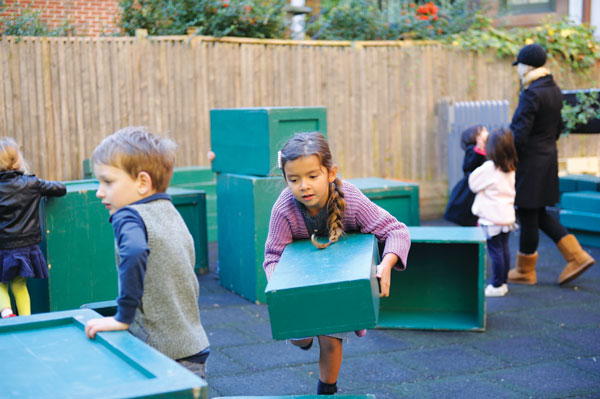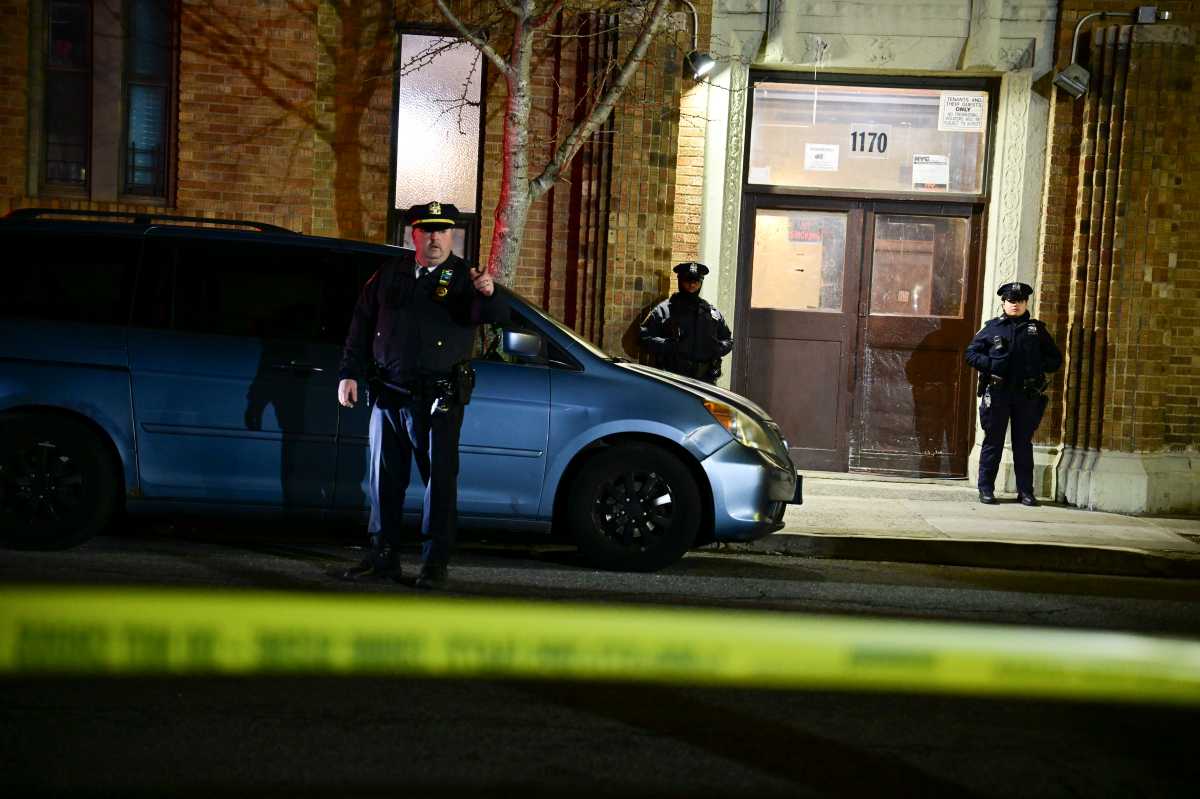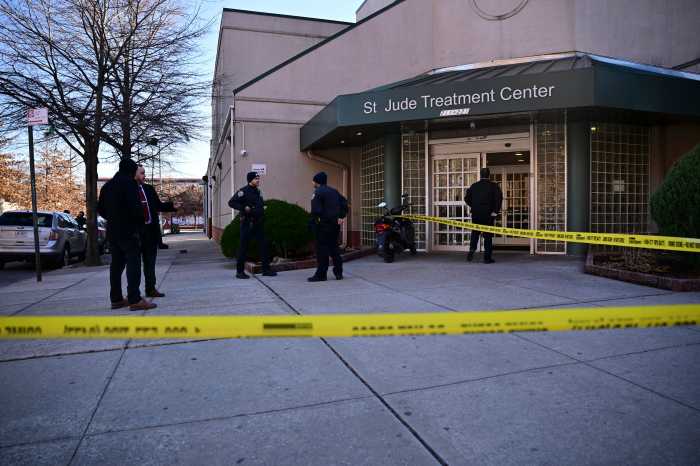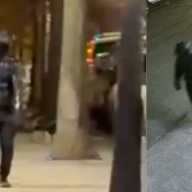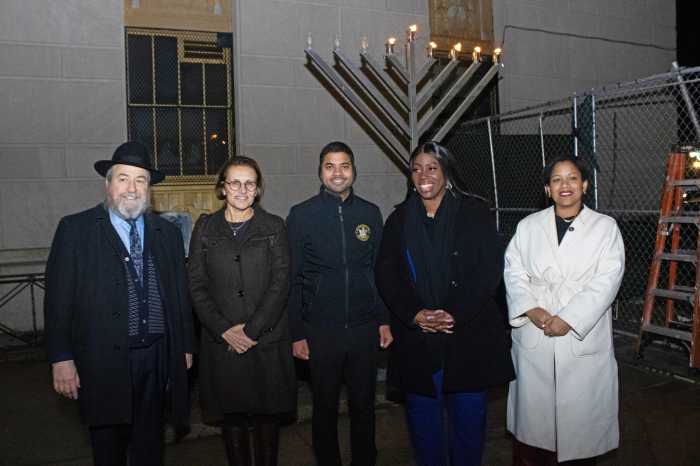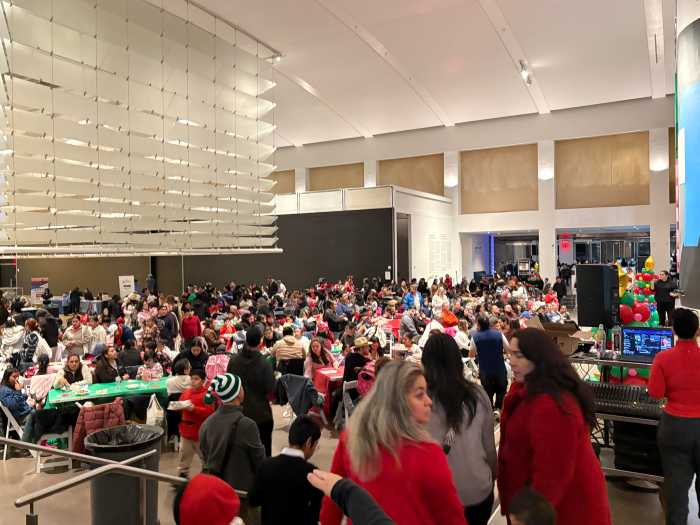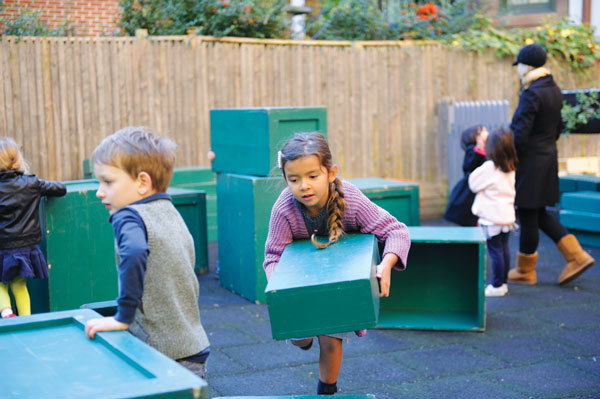
BY TERESE LOEB KREUZER | Through the open windows of Principal Kate Turley’s office, in a mid-19th-century Greenwich Village brownstone, the sounds of children at play in the yard were a backdrop to conversation. There was also the sound of hammering.
“That would be coming from the wood shop downstairs,” Turley said.
A glance out the window revealed that 5-year-old children were collaboratively moving heavy wooden blocks around in the yard that lies between City and Country School’s four brownstones on W. 13th St. and its three brownstones on W. 12th St. The children were building structures on which they climbed, seesawed and reconstructed places they had seen and imagined.
Caroline Pratt, who founded City and Country in 1914, invented those blocks for use by children in yard play. She also invented wooden “unit” blocks that come in fractional sizes for indoor building. Pratt’s unit blocks are now used by schools around the world.
Originally an industrial arts teacher, Pratt’s idea was to give young children open-ended materials, such as blocks, paint, clay and water, rather than providing them with premade toys. From the ages of 4 through 7, City and Country children have workbenches and tools in their classrooms. From the ages of 6 through 13, the children go to the wood shop. Pratt encouraged them to build whatever they needed as they reproduced in their classrooms what they had observed in field trips, first in the school and the neighborhood and then in the city at large.
City and Country is one of the oldest progressive educational institutions in the country. “Progressive” education is based on the belief that children learn best when their minds and bodies are engaged in the process through play and hands-on experiences. Social learning within the community is also emphasized.
The C&C archives, which date from the school’s founding, contain writings, photographs and student work that document the history not only of the school but of the progressive education movement in general. Along with John Dewey, who taught at Columbia, and Lucy Sprague Mitchell, who founded the Bank Street School, Caroline Pratt was one of progressive education’s luminaries. The C&C archives are open to scholars.
Except for upper school math and vocabulary building, no textbooks are used at City and Country. Instead, from the earliest ages, children are encouraged to ask questions and to do the research to find the answers. Beginning at the age of 7, each child spends part of the day in the school library. Teachers are there as guides and facilitators. They help the children to work things out for themselves.
“One of the key things we say in our mission statement is that the teacher’s place is alongside the child — not in front of the classroom,” said Turley. “The idea is to ask questions in pursuit of a deeper perspective.”
With City and Country nearing its centennial, much has changed but much remains just as Pratt envisioned it. Every year, hundreds of educators come from all over the world to observe C&C practices.
The school’s jobs program is one of its hallmarks. Beginning with the 8-year-olds, every group in the school has a real job that it does for the school community.
“We give tremendous time and resources to the jobs program,” Turley said. “In other schools, jobs that affect the entire community to the degree that we do it here are rare.”
The 8-year-olds run the school post office. The older children run the school store, make signs for the school, print some of the school forms and work with 4-year-olds. The 13-year-olds write the school newspaper.
“The children are really taking part in the running of the school,” said C&C’s admissions director, Elise Clark. “All of the jobs allow them to showcase their academic skills in a very meaningful way.”
While the 11-year-olds print holiday cards and a literary magazine on the school’s two 19th-century Chandler Price foot-treadle presses, C&C students also use computers in various ways. Nine-year-old children go on the Internet to compare prices and order supplies for the school store. They use computers to create its catalog. Older children use iPads to share comments about books that they have all been reading. As an elective, students use computers to make films.
“They’re bridging old technology with new technology, and I think that’s threaded throughout the school, where you’ll see rituals that were put in place a hundred years ago by Caroline Pratt, but updates have been made along the way,” said Clark.
City and Country now has an enrollment of 360 students, from nursery to eighth grade. There are two groups at all age levels except for the 13-year-olds. Classes range in size from 13 to 20. There are 98 people on staff.
Although C&C is currently fiscally healthy, there was a time in the 1980s when it almost closed.
“City and Country survived because of the dedication of our teachers,” Turley said. Many of them had taught at the school for decades. “They sacrificed to teach at our school and keep it going because of their love of what it is, what we do, why we do it.”
To make it through those difficult years, the school sold its 12th St. brownstones and retreated to its properties on 13th St. In December 2003, with Industrial Development Authority bonds, the school was able to repurchase the 12th St. buildings.
“The school has thrived because of an increasing recognition by a parent body of the value of the type of education we provide here,” Turley said. “There are more people understanding through the research, through the literature and through visiting, that this is a unique and powerful learning opportunity for their children.”
Most of the younger children live near the school, which is at 146 W. 13th St. The older children come from other parts of the city and even from New Jersey.
Tuition ranges from $17,400 for part-time for 2-year-olds to $34,600 for the eighth grade. Extensive financial aid is available.
The school offers extended services and numerous after-school programs, some for an additional fee. Among other things, in after-school, the children can take yoga lessons, study Mandarin Chinese, Spanish for Native Speakers and chess. They can also take private instrumental music lessons.
For no additional fee, the older children can participate in interscholastic sports, such as basketball, volleyball, soccer and softball. A running club is active in the spring.
There is a December lottery for admission to the 2-year-old and 3-year-old groups to narrow the applicant pool to a reasonable size. Admission for the 5-year-olds and up entails a parent interview.
On Nov. 7, City and Country held an open house from 6 p.m. to 8 p.m. for prospective families. For more information, contact Elise Clark at (212) 506-5943.



